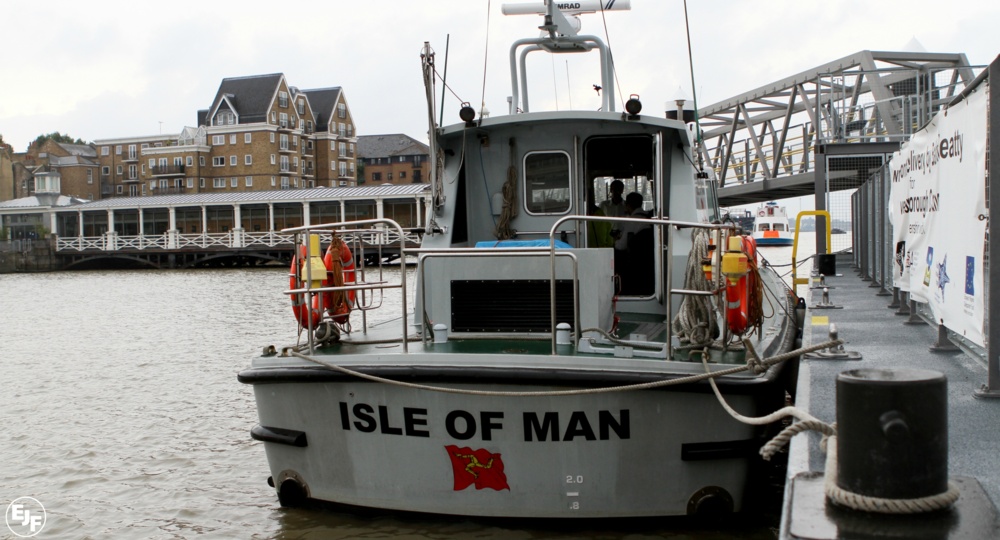
Dec 21, 2012
Sierra Leone arrest pirate vessel using donated Isle of Man patrol boat
Over the past 18 months, Sierra Leone has worked with the Environmental Justice Foundation, the United States Navy and other partners to reduce illegal fishing and is implementing the World Bank financed West African Regional Fisheries Programme (WARFP). This has resulted in the arrest of eight illegal vessels and over USD $2 million of fines. As a result, reports of illegal fishing in areas close to shore have dramatically reduced and artisanal fishermen have reported increased catches due to their ability to operate freely without fear of their nets being destroyed by industrial bottom trawlers.
"We have arrested a poacher that was taking fish illegally from our waters. As I have said in the past, Sierra Leone will be consistently tough on illegal operators. They are undermining our country's economy and development. I have not hesitated to use the full force of the law against them, and the donation of the patrol boat by the people and Government of the Isle of Man has given us a powerful resource to do just that." Dr. Soccoh Kabia, Honourable Minister for Fisheries and Marine Resources
“We are delighted that the vessel donated by the Isle of Man has been put to such good use by the Sierra Leone Government. The use of false identities to perpetrate illegal fishing is a widespread problem in West Africa, and it is a tribute to the arresting team that they were able to expose it in this instance. To make such arrests easier and more frequent, it is vital that companies and countries across the world support the development of a Global Record of all fishing vessels, which would assign each boat a unique identifier that would make such deceptions far less frequent.” Steve Trent, Executive Director of the Environmental Justice Foundation
When the vessel was donated, Phil Gawne, chairman of the Isle of Man Overseas Aid Committee, said:
"I am fully aware of the desperate need the country has for an effective enforcement vessel. Over 100,000 families rely on fishing for both an income, and as their major source of protein, and the activities of illegal industrial trawlers are putting this all at risk."
SIGN UP FOR OUR EMAILS AND STAY UP TO DATE WITH EJF